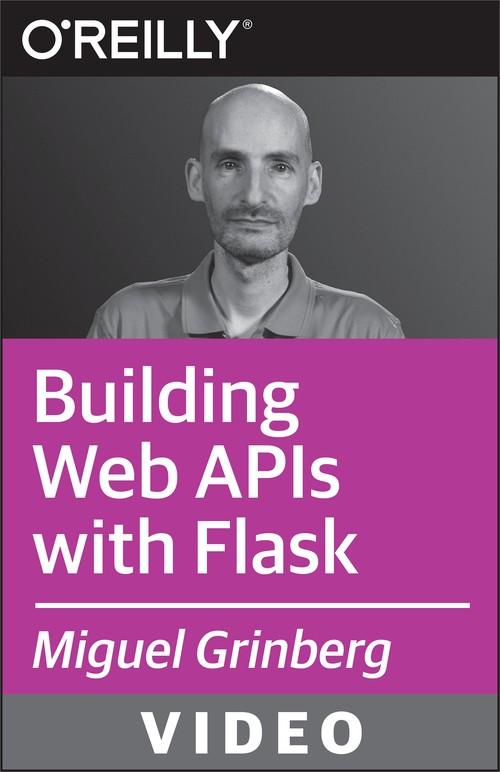Categories: Tutorials

Oreilly - Building Web APIs with Flask
by Miguel Grinberg | Publisher: O'Reilly Media, Inc. | Release Date: August 2014 | ISBN: 9781491912393
If you want to build web services and APIs, this video course shows you how to do it with Flask—the popular web framework that's small, lightweight, and powerful. Using detailed examples, Miguel Grinberg shows you how to create APIs line-by-line, starting with the implementation of a basic CRUD (Create/Read/Update/Delete) service.You'll also learn how to create APIs for internet-enabled devices, authenticate API clients, use testing techniques, and simplify advanced features such as pagination, caching, rate limiting, and asynchronous tasks. In the process, you'll become familiar with all of the core features APIs must have, including requests, responses, resources, resource representations, resource links, and error handling.If you're an experienced developer familiar with Python and relational databases, this video is for you. It also serves as a detailed extension of the API chapter in Grinberg's book, Flask Web Development.Miguel Grinberg has over 25 years of experience as a software engineer. In his current position at Rackspace he spends most of his time contributing to open source projects in the OpenStack ecosystem. He blogs at http://blog.miguelgrinberg.com about a variety of topics including web development, robotics, and photography.
- Introduction
- Welcome and Setup 00:04:35
- API Demonstration 00:16:07
- Implementing APIs with Flask
- Basic CRUD Implementation 00:14:33
- Relationships Between Resources 00:14:47
- Error Handling 00:05:03
- Working with Hardware Devices 00:28:44
- Security
- Password Authentication 00:13:29
- Token Authentication 00:15:33
- Testing
- Writing Tests with the Flask Test Client 00:09:33
- Obtaining Test Coverage Metrics 00:04:14
- Advanced API Practices
- Project Structure for Larger Projects 00:14:51
- Implementing Custom Decorators for Flask Routes 00:04:27
- Simplifying Responses 00:05:12
- Paginating Resource Collections 00:19:54
- HTTP Caching 00:12:16
- Rate Limiting API Access 00:08:59
- Asynchronous Tasks 00:20:30
Related Posts
Information
Members of Guests cannot leave comments.
Top Rated News
- MRMockup - Mockup Bundle
- Finding North Photography
- Sean Archer
- John Gress Photography
- Motion Science
- AwTeaches
- Learn Squared
- PhotoWhoa
- Houdini-Course
- Photigy
- August Dering Photography
- StudioGuti
- Creatoom
- Creature Art Teacher
- Creator Foundry
- Patreon Collections
- Udemy - Turkce
- BigFilms
- Jerry Ghionis
- ACIDBITE
- BigMediumSmall
- Boom Library
- Globe Plants
- Unleashed Education
- The School of Photography
- Visual Education
- LeartesStudios - Cosmos
- Fxphd
- All Veer Fancy Collection!
- All OJO Images
- All ZZVe Vectors




 Categories
Categories







